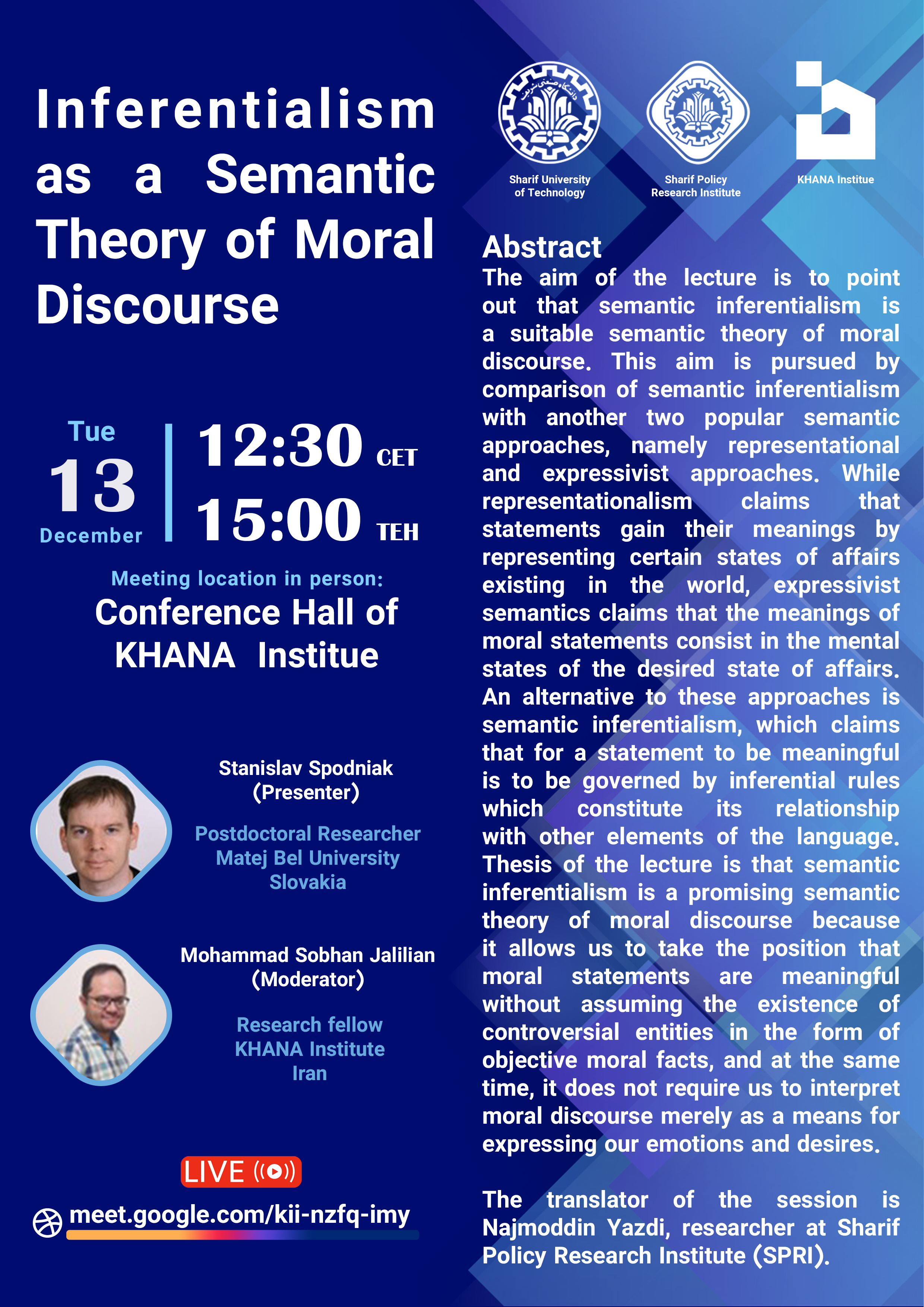About Meeting
- Stanislav Spodniak (Presenter), Postdoctoral Researcher matej Bel University, Slovakia
- Mohammad Sobhan Jalilian (Moderator), Research Fellow KHANA Institute Iran
The translatore of the session is Najmoddin Yazdi, researcher of spri
.jpg)
Abstract
The aim of the lecture is to point out that semantic inferentialism is a suitable semantic theory of moral discourse. This aim is pursued by comparison of semantic inferentialism with another two popular semantic approaches, namely representational and expressivist approaches. While representationalism claims that statements gain their meanings by representing certain states of affairs existing in the world, expressivist semantics claims that the meanings of moral statements consist in the mental states of the desired state of affairs. An alternative to these approaches is semantic inferentialism, which claims that for a statement to be meaningful is to be governed by inferential rules which constitute its relationship with other elements of the language. Thesis of the lecture is that semantic inferentialism is a promising semantic theory of moral discourse because it allows us to take the position that moral statements are meaningful without assuming the existence of controversial entities in the form of objective moral facts, and at the same time, it does not require us to interpret moral discourse merely as a means for expressing our emotions and desires.








